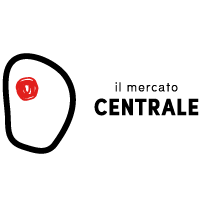80% of travellers are aware of the impact of their choices and are ready to their change habits in a sustainable way
Human Company is continuing to uphold its commitment to sustainability. In the 2023–2027 Sustainability Plan, fully integrated with the industrial plan and aimed at furthering the company's governance, strategy and targets in terms of sustainability, the Group presents an update on the activities already implemented – including financing in the ESG field secured with a bank pool, with UniCredit in the role of Agent Bank and Global Coordinator – and a new edition of the "Tourism & Sustainability" survey, carried out in collaboration with the BVA Doxa research institute[1]. Through this study, the Group is once again underlining its commitment to deepening travellers' understanding of sustainable tourism, offering an up-to-date picture of Italians' attitudes, behaviours and opinions regarding more conscientious and responsible travel practices.
THE SURVEY RESULTS
Sustainable tourism: high awareness, but commitment levels vary depending on the actions required
The research highlights that 80% of travellers are aware of the impact that their choices can have on the sustainability of the destinations visited. In fact, they proved very open to examining their habits from a more responsible perspective. This data presents an opportunity to involve tourists as "allies" of sustainability, increasing their role and providing them with clear and accessible tools to adopt virtuous behaviours during their travel experience. However, their propensity to introduce sustainable habits proved higher for simple actions, such as respecting local flora and fauna (preferred by 36%), correct waste management (33%), attention to energy consumption (32%) and protecting natural resources (32%). On the contrary, tourists' commitment level drops significantly when behaviours require greater personal involvement or a more profound change in habits, such as changing their diet (preferred by 13%), choosing sites with environmental certifications (13%) or actively participating in green volunteer initiatives during their stay (7%).
Green hospitality: farms, lodges and campsites preferred among travellers
With regard to accommodation and sustainability, the travellers reached a clear consensus: farms (91%), mountain lodges (86%) and open-air accommodation sites (84%) topped the ranking of solutions perceived as more sustainable, thanks to their ability to offer experiences in direct contact with nature. Respondents also ranked bed & breakfasts (76%), holiday homes and hostels (71%) highly, deeming them aligned with an environmentally friendly approach. On the other hand, facilities such as hotels (30%), resorts (24%) and cruise ships (14%) are considered less sustainable, while spas hold an intermediate position with 49% of votes. This data highlights how the perception of sustainability is often closely linked to the type of experience offered and the context of the stay. In line with the results of the 2024 edition of the Observatory, almost all of the respondents (95%) agreed that it is possible to adopt sustainable tourism practices even during an urban holiday; the most effective ways to do so include respecting local values and specialities (48%), seeking out authentic and "off-the-beaten-path" itineraries and experiences (44%), and choosing to travel in the low season (36%).
Distinctive elements, factors affecting choices, and attractiveness of sustainable accommodation facilities
As in the previous edition of the study, in order to establish a comprehensive index of the most relevant characteristics of a tourist site, three dimensions were once again analysed: the traits that allow it to be defined as sustainable, the drivers that influence travellers' choices before a holiday, and the elements that are most attractive during a stay. The index derived from the intersection of these dimensions (min. 1 – max. 100) shows that, for Italian travellers, the most relevant criteria are the use of renewable energy (index = 100), the promotion of food and wine products (98), the conservation of the natural environment (96), the presence of green areas, pedestrian paths and cycle paths (94, an increase compared to last year), correct separate waste collection (92, a slight decrease compared to 2024), the elimination of plastic (88), and water saving efforts (81).
2025 holidays: sea, culture and outdoor tourism at the front of Italian travellers' minds
For 2025, seaside holidays are once again the top choice among Italian travellers (51%, with a peak of 58% among families with children). Following close behind are cultural trips (45%), chosen mainly by respondents with extensive experience travelling abroad (54%). The mountains are the leading destination for 1 in 5 Italians (19%), while options with a focus on wellness (17%) and food and wine (16%) proved particularly popular among under 35s (24% and 22% respectively). Cruises were deemed attractive by 10% of travellers, while adventure, sports and religious trips are holding on to their niche. The data collected clearly shows the popularity of outdoor tourism: 75% of the travellers interviewed enjoy this style of holiday regularly, and 1 in 3 described themselves as very frequent outdoor tourists. Among the factors that guide travellers' choice of outdoor destination, the most prominent ones include: beauty and variety of landscapes (preferred by 37%), followed by favourable weather conditions (31%). Respect for the environment serves as strong motivation (30%), but tourists were found to pay less attention to more technical indicators, such as green certifications or environmental policies (8%); sustainability is therefore particularly valuable when it is intertwined with concrete needs related to personal wellbeing and economic availability.
When it comes to outdoor sites, the most popular sustainable solutions are tangible and easy to access: zero-mile products in restaurants and internal markets (83%), low-plastic solutions (78%) and renewable energy (77%) are perceived as the most effective and convincing actions. Travellers are also interested in regeneration efforts (76%), promotion of the territory (75%), teaching spaces (75%) and areas dedicated to physical and mental wellbeing (71%). Digital solutions and environmental partnerships remain more distant in terms of appeal and perception, struggling to convey tangible benefits to guests. In this ever-evolving context, operators in the sector and accommodation facilities must respond with a strong vision and concrete actions. Human Company is committed to serving as a trailblazer, forging a path to sustainability.
GROUP SUSTAINABILITY PLAN UPDATE
As part of the 2023–2027 Sustainability Plan, Human Company is proud to present an update on the numerous activities already implemented and unfolding, based on three fundamental pillars: nature, local communities and people. The Group's commitment has translated into concrete actions that touch on various areas, including: defining a carbon strategy (a company strategy aimed at reducing its greenhouse gas emissions); the drafting the 2024 sustainability report; improving waste management; phytostatic mapping (georeferencing of each tree for preventive maintenance of the greenery and calculation of the CO2 retained on an annual basis); continuous improvement of the accessibility of hu openair sites (with the installation, for example, of hu stay Smart For All mobile homes, designed to be functional and inclusive, with larger spaces, en-suite bathrooms, accessible showers and convenient entrance ramps); a double materiality study of corporate activities related to sustainability; direct involvement of guests of the sites through practical activities such as green educational workshops; 100% of energy from renewable sources through guarantees of origin (GOs). The Group's commitment to ensuring that 100% of the mobile homes in the villages are equipped with IoT systems for measuring and reducing energy consumption is also noteworthy.On the social front, it is worth mentioning the launch of training programmes on the topic of diversity and inclusion, accompanied by the definition of a dedicated policy and the inauguration of educational projects, which have already involved over 250 students from schools in the areas in which the Group operates, and which are dedicated to themes such as hospitality, integration and the promotion of local excellence. Finally, in the realm of sustainable mobility, the Group is installing over 46 charging stations on its sites and is working on new agreements with public transport companies to encourage the use of collective transport and bicycles.
These initiatives reflect the company's vision of actively contributing to more sustainable tourism, in line with the objectives laid out in the plan: a concrete response to the expectations of travellers who are increasingly aware of these issues. Additionally, the financing agreement established with a bank pool, with UniCredit in the role of Agent Bank and Global Coordinator, provides for the achievement of specific ESG targets in both the environmental and social fields over the next seven years. For Human Company, this strategic initiative represents a concrete step towards strengthening its sustainable growth model, based on responsibility, innovation and long-term shared value. The agreement allows for even more profound integration of sustainability into corporate practices, establishing two clear and measurable objectives: a progressive increase in training hours dedicated to sustainability, aimed at spreading a common culture, awareness and skills throughout the organisation; and an annual reduction in emissions, thus mapping out a concrete path toward a low-carbon future, limiting the environmental impact and aligning with the priorities of the ecological transition. This vision – in line with an intrinsic commitment to the Group's core values and principles – underlines Human Company's desire to play an active part in the change, making sustainability more than a mere objective, but a driver of development.
"At Human Company, we recognise that the transition to more sustainable tourism is one of the most pressing challenges of our time. We are keenly aware of our responsibility, and we are committed to pursuing a concrete and coherent path, which takes into account both environmental needs and respect for socio-cultural diversity. Our sustainability plan has already allowed us to achieve significant results and will continue to guide us towards a future in which we hope tourism will be greener and more inclusive. We share our progress and the goals achieved annually, in the belief that sustainability is not a fixed goal, but a continuous and participatory process, which requires everyone's commitment," explained Mattia Rosati, Chief Corporate Services Officer of Human Company and Mercato Centrale.
[1] The research, conducted by BVA Doxa in April 2025, involved a sample of over 1,000 adults, representative of the Italian population, who took a trip of at least 3 days for tourism purposes in the last 12 months.



